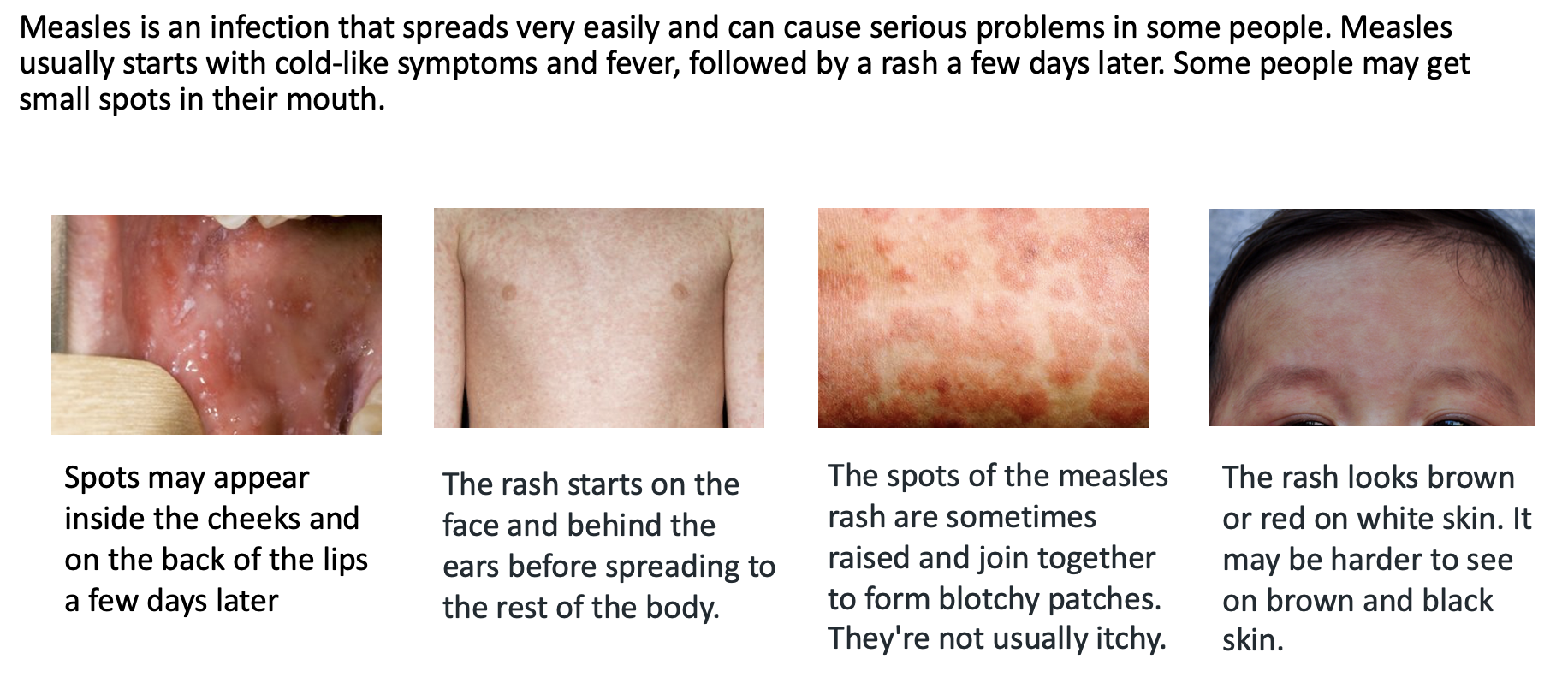Immunisations and infections
Find out what immunisations and vaccines we offer, and what immunisations you can catch up on if you didn't have them as a child. We also have information on infections that are currently a concern such as measles and scabies.
Meningitis (ACWY)
You should ideally get your Meningitis ACWY vaccination at least 2 weeks before starting at university so you are immune before coming to Bristol.
We have appointments for any new student under the age of 25, who registers with us and has not had their MeningitisACWY and/or MMR vaccination. You will need to register online then make an appointment for your vaccinations. Find out more about meningtis vaccination
Immunisations for travel
Read our travel section for information about immunisations for travel.
Human Papilloma Virus vaccine (HPV)
This vaccine reduces your risk of cervical cancer if you are a woman, and also reduces the risk of other oral and genital cancers in both women and men, if you've never had it, and are under 25 years old. Read more.
The JCVI (Joint Committee on Vaccination and Immunisation) has advised that one dose is as effective as two doses for protection from HPV infection.
Anyone who received one dose of the vaccine before Sept 2023 will be considered fully vaccinated and doesn't need a booster. Full guidance.
You can book a catch-up HPV vaccination at Student Health. We give the Gardasil 9 vaccine.
Scabies advice and treatment
If you have been in contact with someone that has told you that they have scabies you may also need to be treated.
- A contact is someone that may be a member of their household, a sexual partner within the past month, or has had close personal contact with the individual with scabies
- If you have symptoms of scabies then please visit your pharmacy for advice or book an appointment with the nurse
- If you have no symptoms but are a contact please complete an e-consult and submit with full details of your enquiry
- More information on managing scabies.
- Bedding, clothing, and towels (and those of all potentially infested contacts) should be decontaminated by washing at a high temperature (at least 60°C) and drying in a hot dryer, or dry-cleaning, or by sealing in a plastic bag for at least 72 hours.
Update on measles - February 2024
Measles, mumps and rubella (MMR) had almost disappeared in England because most people had been vaccinated. Now, not enough people have had the MMR vaccine, so these dangerous illnesses are becoming more common. Measles, in particular, is highly contagious and can cause serious, long-term side-effects.
There have been outbreaks of measles in areas of the UK, so it’s really important that as many people as possible are protected.
For more information about the MMR vaccine and the diseases it protects against, please visit www.nhs.uk/mmr.
How do I get the MMR vaccine?
- Unvaccinated 17-30-year-olds will be contacted by your GP surgery. Look out for a text link.
- If you receive an invite but know that you have already had both doses of MMR, please let you GP practice know, so that they can update their records.
- If you’re not sure whether you (or your children) are fully vaccinated, you can check your vaccination records on the NHS App, ask your parents if you were vaccinated or ever had measles.
- Unvaccinated children 0-5 years old will be invited to book into clinics at your GP surgery. Look out for a text link.
- Unvaccinated children 6-17 years old will be vaccinated by the schools’ immunisation team. Your child’s school should be in touch regarding this.
How does the MMR vaccine work?
- This is a live vaccine that protects against measles, mumps and rubella. Two doses are given at least 28 days apart by injecting into the leg or upper arm.
- Your immune system responds to the vaccine by producing cells that recognise and remember each of the three viruses. If you come into contact with the viruses in the future, these cells activate and rapidly produce antibodies. This gives long lasting protection for all 3 viruses (measles 99% effective, mumps 88% effective, and rubella 99% effective)
- How safe is the MMR vaccine?
- Before vaccines can be used, they have to be vigorously tested for safety. The MMR vaccine has been in use in the UK since 1988 and has helped to protect millions of people. Although there may be some side effects from vaccinations, they are usually mild and much less severe than the disease itself. Serious reactions following vaccinations are rare.
What should I do if I think I have measles?
- Measles is contagious, so you should stay away from lectures or work for at least 4 days from when the rash first appears. You should also make your GP aware.
- If you feel you need to see a GP, the receptionist will want to check if you have been vaccinated against measles and may arrange a telephone call with a doctor. If a doctor needs to see the patient, then they may ask them to wait in a separate room to try to avoid spreading the infection to more vulnerable patients.
- Measles will usually pass in about 7 to 10 days without causing any further problems. You can manage symptoms by giving paracetamol or ibuprofen to relieve fever, aches and pains. Ensure that you drink plenty of water to avoid dehydration
- Anyone with measles should avoid contact with babies and anyone who is pregnant or has a weakened immune system.
- If you are not vaccinated and you come into contact with someone who has measles, then current guidance is to self-isolate for 21 days.

